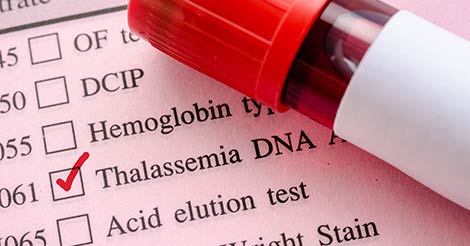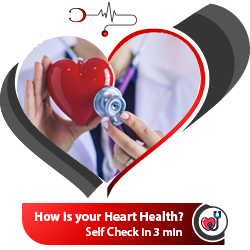Thalassemia: A Wake up Call
Thalassemia has been one the deadliest diseases in the world. It is a genetic blood disorder that has affected around 100,000 patients in India. More shockingly, if proper treatment is not taken then it can prove a fatal health condition. Understanding thalassemia helps in taking precautionary measures and staying healthy.

What Is Thalassemia
Thalassemia is a genetic blood disorder caused by the abnormal hemoglobin production, which ultimately leads to anemia. Due to insufficient production of blood in red cells, oxygen cannot reach to all the body parts leading to disturbed body functions.
Types of Thalassemia
Two types of Thalassemia are known
-
Thalassemia Major
Thalassemia Major is found in children who receive mutated genes from the parents. The child cannot produce the necessary hemoglobin, which ultimately leads to chronic fatigue. Two of the major consequences are severe anemia and expansion of bone marrow in the body in the body's effort to produce more red blood cells. It is crucial that the child gets proper and complete treatment in the early stages of the disease. If the thalassemia treatment is left incomplete, then it can lead to death in the first decade of life. -
Thalassemia Minor
The people with thalassemia trait in one gene are called carriers or Thalassemia Minor. The confirmation of Thalassemia Minor can happen through a specific blood test known as hemoglobin electrophoresis. If you or your parents have thalassemia history then you should request for this blood test. Parents with thalassemia genes have 25% chances of having a baby with thalassemia major.
Why someone gets this disease? Let us find out.
Thalassemia Causes
Thalassemia is a genetically developed disorder; that means if any abnormality or mutation in genes involved in hemoglobin production can lead to thalassemia. If both parents have thalassemia genes then the child is more likely to suffer from this disease.
Thalassemia can be prevented, but to do that we need to know its symptoms.
Thalassemia Symptoms
Following are some common symptoms of thalassemia
- Dark urine
- Pale or yellow skin
- Bone deformities
- Fatigue or excessive tiredness
- Delayed growth
However, all symptoms are visible and some symptoms can be noticed in the later part of childhood also. Thalassemia can be prevented with some simple steps.
Thalassemia Prevention
- Individuals with thalassemia need to consult the doctor and opt for the genetic counseling. This will give an idea on how to reduce the risk of thalassemia transmission to their kids.
- Prenatal tests are recommended to detect thalassemia before birth.
- Doctors also advise following the required immunization schedule for children to manage the disorder.
- The genetic counseling should be given to the parents carrying thalassemia genes. They should be given detailed information about this disease and proper guidance should be provided to safeguard their child from this disease.
Thalassemia is definitely a dangerous disease, but it can be detected at the early stage and can be managed successfully with the help of timely preventive health checkup.






